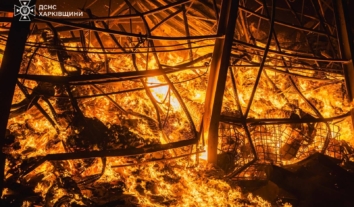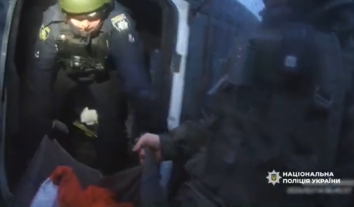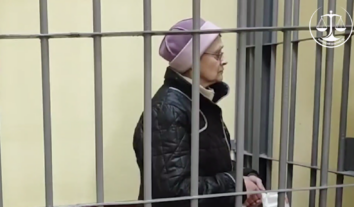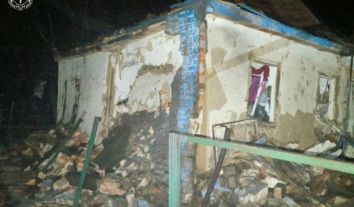Mariupol policewoman Mariana Chechelyuk’s health has deteriorated significantly over the year of captivity
The health of Mariana Chechelyuk, a 22-year-old investigator from besieged Mariupol in the Donetsk region of Ukraine, whom the Russians took prisoner during the evacuation from Azovstal, has deteriorated significantly despite the guarantees of the United Nations and the Red Cross.
For a year, the occupiers transported the woman from one prison to another, subjected her to physical and psychological pressure, and created unbearable detention conditions. Currently, Mariana Chechelyuk needs medical care, which is not provided to her in the Taganrog detention center.
Natalia Chechelyuk, Mariana’s mother, told ZMINA.
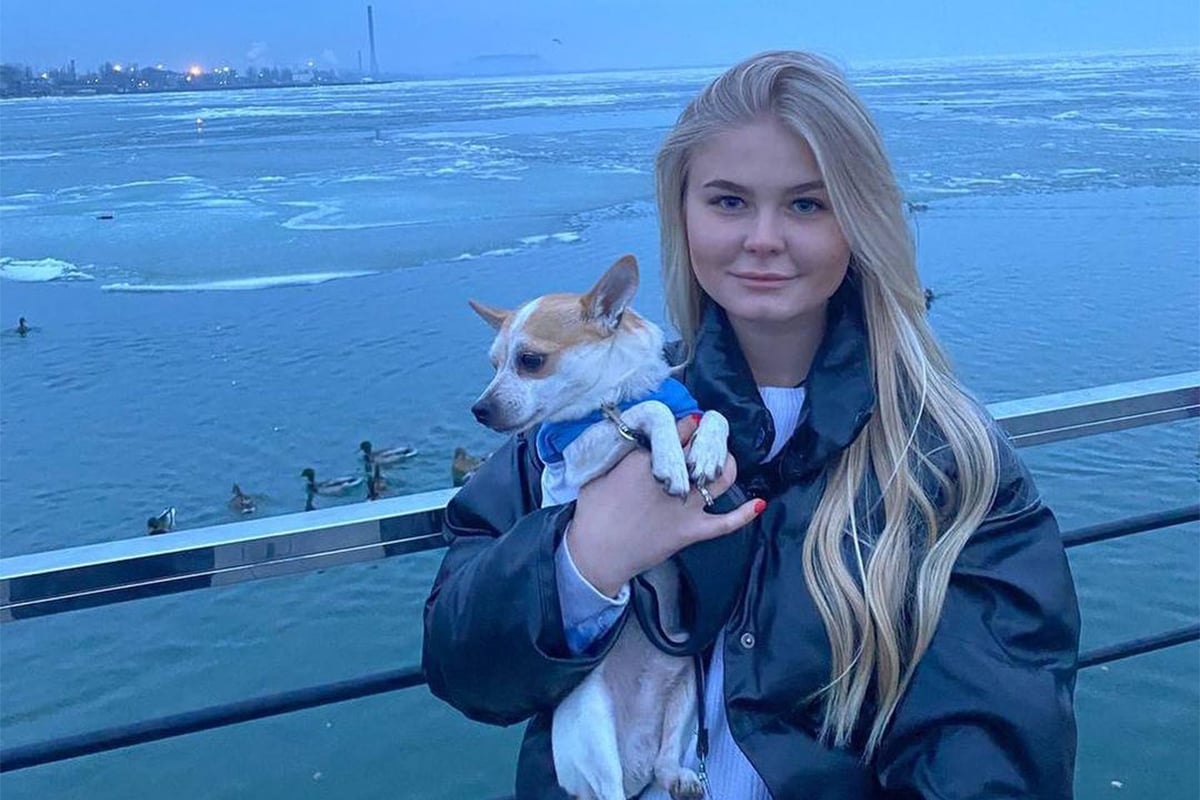 Photo from open sources: Mariana Chechelyuk
Photo from open sources: Mariana ChechelyukNatalia Chechelyuk was contacted by two women held hostage in the same cell as Mariana in the Taganrog Detention Center No. 2 in the Russian Federation. One told her that Mariana Chechlyuk needed medical attention because of unbearable knee pain and critical weight loss.
Mariana often asks for painkillers but can only receive them once a month when a doctor visits the detention center. During his short stay in the prison, he makes rounds and checks on the physical condition of all inmates.
Mariana’s mother also said she had repeatedly heard from other female prisoners that they [Russian occupying forces] “put some drugs in their compote or food so that women would not menstruate at all.”
According to Natalia, Mariana’s cell is located near the torture room, so every day, the girls hear the screams, cries, and moans of the prisoners of war and civilians being tortured.
“One girl’s nose was once broken, and she had to undergo plastic surgery after her release. Mariana was forced to stand in a swallow pose all day. If she tried to sit down, she was punished for it,” Natalia says about the torture and abuse of her daughter.
According to her, women in Russian prisons cannot maintain basic hygiene, as they are only taken to wash once a week.
The Russians also put psychological pressure on them, saying, “There is no Ukraine anymore.” Thus, Mariana was taken seven times for a fake exchange, held for 40 minutes in a field, and then returned to prison. The occupiers explained, “Look, your country does not need you. You are a nobody, and no one needs you.”
Natalia also said that her daughter was kept in a punishment cell for more than a month, which happened not only in the temporarily occupied Donetsk but also in Volgograd, Russia.
“What kind of offense is she being held there for? What did she do? It just doesn’t fit in my head. Just imagine: my daughter was held in Olenivka, where all the barracks were next to each other. All these people who were there at the time heard all the horror happening there. They heard how our guys were burning alive after the Russian shelling.”
Olenivka is a detention facility in the temporarily occupied territories of the Donetsk region. On July 29, 2022, Olenivka was attacked by Russian occupying forces, killing over 50 Ukrainian prisoners of war and civilian hostages held there.
Natalia Chechelyuk says she is very disappointed with the actions of the United Nations (UN) and the International Committee of the Red Cross (ICRC), which were supposed to take civilians from Azovstal of Mariupol through humanitarian corridors last year.
It was agreed that people would be taken out through occupied Berdiansk to Zaporizhzhia. Still, for some reason, they were taken to the territory of the temporarily occupied Donetsk region, also known as the so-called “Donetsk People’s Republic.”
At the same time, foreign representatives stood by and calmly watched as the “DPR” representatives abducted people. They dared not even demand that Russia comply with its commitments.
During the 13 months of Mariana’s captivity, none of these organizations inquired about her or her fate.
“The UN and the ICRC are worthless organizations that are not an authority for the Russian Federation. Their representatives stood and watched as adults and children walked through mined areas without escort. And when civilians were being taken to the “DPR,” they just shrugged their shoulders and said they could do nothing,” Natalia says.
Previously, ZMINA told about Mariana Chechelyuk. Mariana and her sister Alina were born in Mariupol. After graduating high school, the older sister studied at the Kharkiv National University of Internal Affairs. After completing her studies, she returned to her hometown and entered a police school.
Later, she became an investigator in the Zhovtnevyi district of Mariupol, where she performed her duties for about a year until February 24, 2022. She was an animal volunteer, feeding street animals.
The five-story building in the Livoberezhny district on Peremohy Avenue in Mariupol, where the family lived, burned down in March during a shelling by “grad” rockets. On March 25, during another shelling, the sisters fled to Azovstal’s shelters, but their parents did not have time and stayed on the other side of the plant, near the bread factory. There had been no connection since early March between the family members. They could not call Mariana and Alina.
When civilians were evacuated from Azovstal, UN and ICRC representatives promised to take Mariana and Alina to Zaporizhzhia. Still, they were taken to the village of Bezymenne near Mariupol for filtration. This happened on May 1, when a humanitarian corridor was organized for civilians. Hundreds more Mariupol residents left the shelter with the girls.
The family managed to free their younger daughter. The occupiers allowed Alina to call her parents. The occupiers also said that if they did not take the daughter within 24 hours, she would be transferred to an orphanage, as she was a minor.
Mariana was promised to be returned in two days, then in a week, and then the Russians began to deny that they were holding her. Alina told her parents that on May 1, they both went through filtration in the afternoon. Then they were placed in a tent camp, and at 9 p.m. on the same day, a representative of Russia’s Federal Security Service allegedly came to them and took Mariana away. There is information that the girl was forced into a car and taken to Donetsk.
During the eight months of detention, there was only one call from Mariana to her parents. During the short conversation, she managed to ask what happened to her sister. The family thought the Russian military blackmailed her on this basis.
Later, it was reported that Mariana was allegedly kept in solitary confinement in Donetsk for two months, then transferred to the village of Olenivka, to the 120th colony, and then to the detention center in Taganrog, Rostov region.
ZMINA Human Rights Center, together with Ukrainian and international partners, documents incidents of enforced disappearances, detentions, and abductions of civilians in the temporarily occupied territories of Ukraine. If your relatives have disappeared or you have fears that they might have been kidnapped, please write to our e-mail address es@humanrights.org.ua. Our representative will contact you.
With the consent of the applicant, the received information will be used for appeals to national and international investigative bodies, as well as international organizations, in particular to the United Nations (UN) Committee against Torture, the UN Independent International Commission of Inquiry into the Events in Ukraine, the UN Monitoring Mission on Human Rights in Ukraine, the International Criminal Court, etc. to document and further investigate war crimes committed in Ukraine and bring the guilty to justice.

